The Americans learned Imperialism from the best.
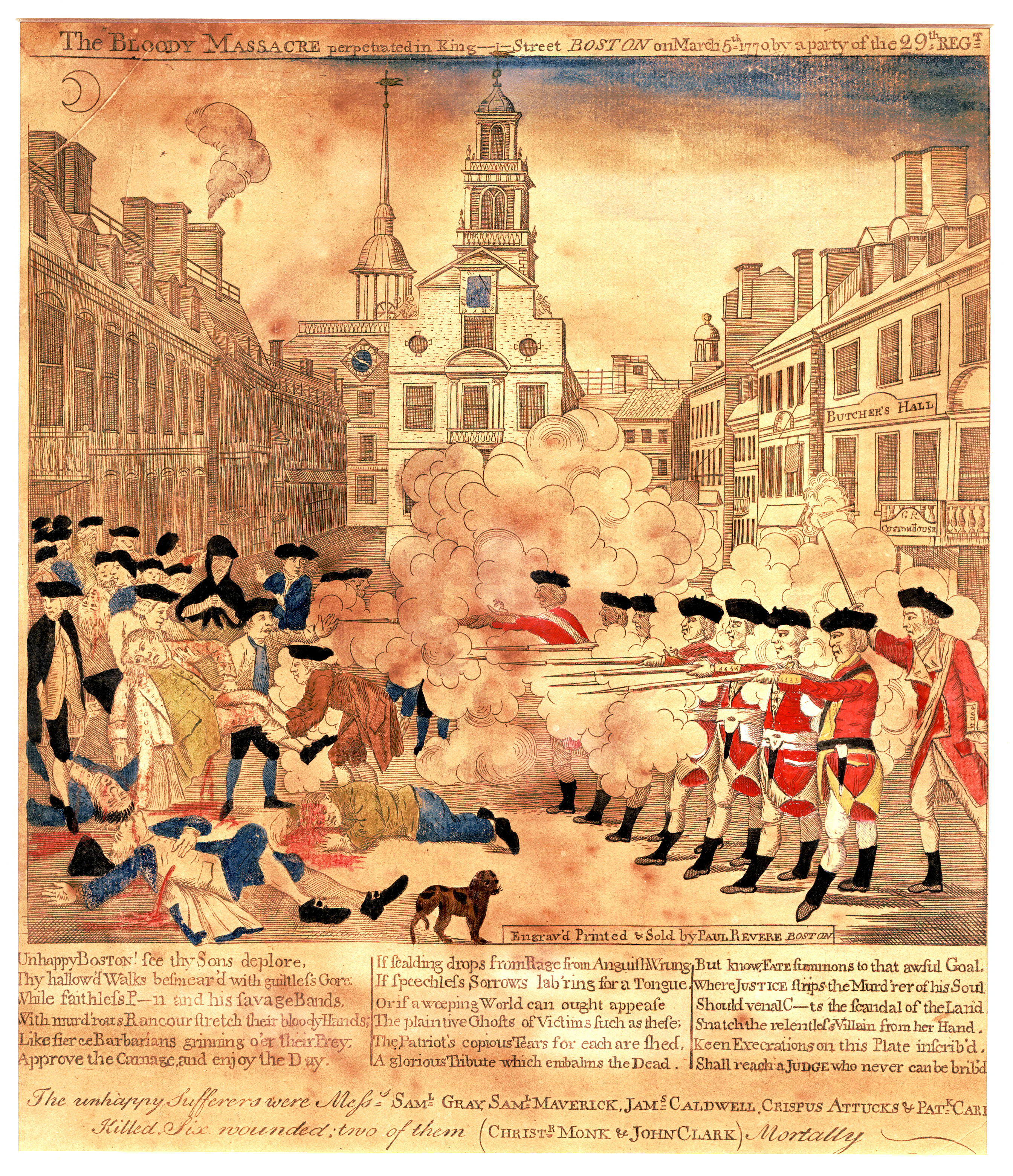
And America wanted to be equal.
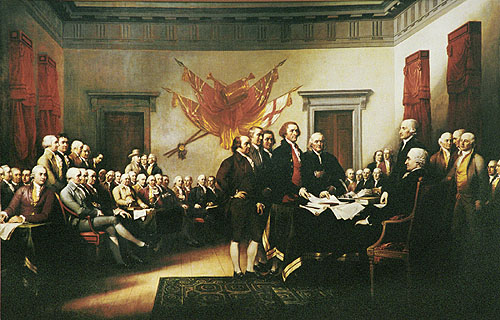
They started small:

But their message was clear and simple:

And they immediately went about attempting to acquire Canada.

They failed.

However, they still opened plenty of new markets to the West:

Of course, there were people already living there. No matter. They were considered 'foreigners' and they were crushed.

Alas, the military wasn't just used on foreigners. Domestic opposition was also crushed.

All that military action was expensive, however, so this guy put together the financial package to pay for it all:

Hamilton's idea was to bind the individual states to the more powerful federal government through debt to foreign banks. It worked.
At around this time, America went on its first overseas adventure - against muslims who threatened their commercial interests.

But unlike almost all the Presidents before and after him, Thomas Jefferson ultimately preferred shopping to military adventurism. The effect was the same though. More debt and new markets:

But it was quickly back to military adventurism in 1812, when the Americans again invaded Canada.

And again they failed.

During this time, what developed in America were two competing economic systems, both rooted in debt capitalism.
Wage slavery:

and actual slavery

The competition between the two came to a head several times over the issue of opening new markets. One sticky point was Texas - where actual slavery was preferred.
Technically, however, Texas still belonged to Mexico. Of course that didn't stop Americans from annexing it in 1845.

Mexico was mad. They saw the Americans as invaders.

Mexicans defended their land from invading Americans. Some Americans were killed. This was called The Thornton Affair.

President Polk insisted "American blood has been shed on American soil." (It hadn't.)
A young Abraham Lincoln drafted in response The Spot Resolution which would have required the President to prove the contested spot was actually on American soil. (It wasn't.)
No matter. War was declared on Mexico and before long, the Americans marched into Mexico City.

And as a result, the Americans opened some new markets:

Just in time, too, because apparently a lot of gold was found the next year.

Eventually, in the fight to open new markets, the two economic systems could no longer co-exist. The answer? War.
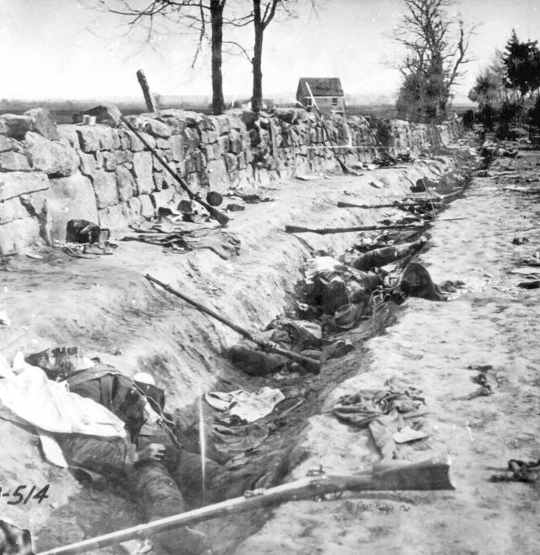
Wage slavery won, and Sherman burned the South for good measure:

For the next several years, the Americans busied themselves with market consolidation, and liquidation of the previous residents.

By the end of the 19th century, America was starting to look like this:

And mammon was the American king:

Just as Americans were running out of new 'domestic' markets to open, Alfred Thayer Mahan wrote his watershed book The Influence of Sea Power Upon History, 1660-1783 where he claimed that a nation's economic power has everything to do with its Navy's ability to force open new markets overseas.
It was music to the ears of these people:

Soon, conveniently, the USS Maine sailed into Havana harbor and promptly exploded (from the inside).

President McKinley ordered a court investigation which concluded: �The court has been unable to obtain evidence fixing the responsibility for the destruction of the Maine upon any person or persons.�
Teddy Roosevelt quipped that the "white-livered President McKinley has no more backbone than a chocolate eclaire.�
And then the newspapers sold a war anyway:

Good thing, too. Look at all the new markets which were opened up:

McKinley was then assassinated, the American left was blamed, and Teddy Roosevelt became President.
And, after sponsering a revolution in Columbia-owned Panama, he promptly set about building a massive canal there:

Of course, all this economic militarism cost a lot of money. Somebody had to pay for it. During all this time, the American market suffered periodic economic destablizations. For example, there was:
the Panic of 1819
the Panic of 1837
the Panic of 1857
the Panic of 1873
the Panic of 1884
the Panic of 1890
the Panic of 1893
the Panic of 1896
the Panic of 1901
the Panic of 1907
the Panic of 1910-1911
Essentially, as the Empire absorbed more and more markets, common people kept losing their shirts:

Somehow, though, the rich still had the money to finance every new expansion of the market.
A "solution" finally came in the formation of the Federal Reserve Act of 1913.
Not everyone was happy about it. Congressman Charles August Lindburgh (father of the future pilot) warned against it:
"This Act establishes the most gigantic trust on Earth. When the President signs this bill, the invisible government by the Monetary Power will be legalized. The people may not know it immediately, but the day of reckoning is only a few years removed... The worst legislative crime of the ages is perpetrated by this banking bill."
But the President signed it anyway:

With the American military-commercial machine now completely owned by private banks, the American Empire could finally afford to take on the vast and profitable European market by destabilizing its competition, the old-world Empires.
Of course, they also needed an excuse to drag the American people to what in their narrow perspective was a 'foreign' war.
Conveniently, American newspapers got ahold of the Zimmerman Telegram, a secret communique in which Germany attempted to recruit Mexico to fight against the U.S.

And that was that. The war was on for America:

Luckily, the U.S. Navy had the most modern battleships in the world:

This is, of course, thanks to a young Franklin Roosevelt, then Secretary of the Navy:

The ensuing war effectively ended the competing commercial empires of Germany, Russia, and Austria/Hungary, while simultaneously devastating the competing commercial empires of Britain and France.
No wonder they called it "The Great War".

Oh sure. There were people who tried to say "NO", but by that point, it was simply impossible to stop the convergence of influence and interests.

And so, Woodrow Wilson initiated the first global market experiment, The League of Nations, and everything was hunky dory again until... whoops. Another panic!

Could this be the 'day of reckoning' Lindburgh Sr. warned about?
A whole army of World War I veterans thought so. They marched on Washington demanding immediate payment of their service bonuses:

They even occupied Washington D.C. itself:

But eventually, they too were crushed:

They were driven from the city by the U.S. Army, which was commanded by two officers who would soon become world-famous, Douglas MacArthur and Dwight Eisenhower:

A year later, F.D.R. swept into power, a President-for-life:

Always looking for new markets, American banker Imperialists rebuilt Europe and financed proxy Empires. They created Franco:

and Hitler:

In 1937, the Imperialist Japanese army raped and destroyed Nanking, China:

Eighty percent of Imperial Japanese oil at that time was imported from the United States.
Just in case the proxy empires wouldn't remain profitable, however, the Americans began building the Pentagon on September 11, 1941.

Meanwhile, American-proxy Hitler pushed deep into the territory of the American-allied USSR:

And then in December of 1941, the American-allied Soviets pushed back

So, another excuse was needed to drag the myopic American people to war. Franklin D. Roosevelt arranged with the Imperialist Japanese to bomb Pearl Harbor.

The Japanese conveniently failed to hit the submarine base, the massive fuel storage tanks, or any aircraft carriers (which conveniently weren't there that day).
Only three ships were permanently lost to the U.S. Navy in the attack. These were the battleships Arizona, Oklahoma, and the Utah - all of which were out-dated WWI era ships which F.D.Roosevelt had launched.
Nevertheless, plenty of material was salvaged from them, including the two aft main turrets from Arizona, and the Pacific fleet was back up and running in no time.
Then, the Americans doublecrossed Imperial Japan and completely destroyed them in a protracted naval and air battle in the Pacific.
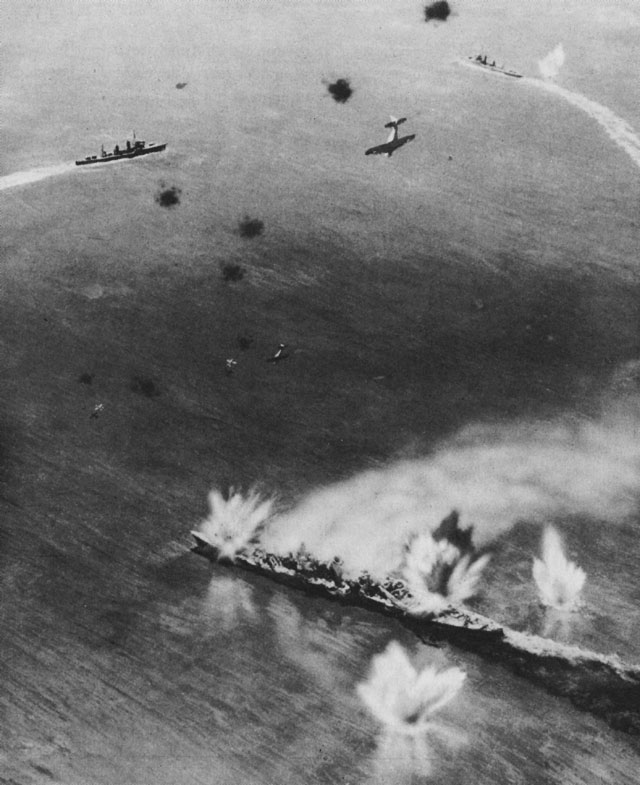
With Japan pinned by a couple years of intense fighting, the Americans finally entered Europe:

Where they promptly lost the race for Berlin. Oops:

No matter. The Americans still had an Ace up their sleeve:
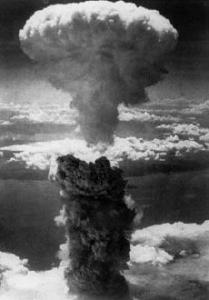
And with that big KABOOM, the American Military Commercial Empire effectively cornered the world market.
Death Toll 1770-1945 = incalculable.
After that, things started to get really interesting...